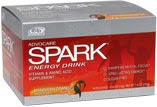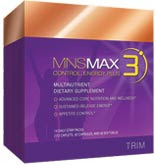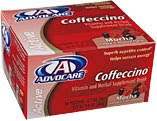 Do you ever check the fluid levels in your car? If you do, you know that they occasionally need to be replenished. If you don’t you find out the hard way when a red warning light flashes on your dashboard. If only our bodies were as easy to check as the car, then we’d know that when we’re working hard, especially in the heat, our fluid and electrolyte levels drop dramatically – sometimes with disastrous effect.
Do you ever check the fluid levels in your car? If you do, you know that they occasionally need to be replenished. If you don’t you find out the hard way when a red warning light flashes on your dashboard. If only our bodies were as easy to check as the car, then we’d know that when we’re working hard, especially in the heat, our fluid and electrolyte levels drop dramatically – sometimes with disastrous effect.An average adult body is 50 to 65 percent water — that’s roughly 45 quarts. Blood is made up of 83 percent water, bones are 22 percent water, and muscle is 75 percent water. Water is the basis for all body fluids and is involved in numerous vital metabolic processes. While a human can survive more than a week without food, a person will die within a few days without water.
When we lose fluid through sweat we also lose minerals such as calcium, potassium and sodium, electrolytes that help regulate the body’s fluid balance. Just a two to five percent decrease in body fluid can reduce blood volume, decreasing oxygen delivery to muscles and organs. Decreased carbohydrate availability may also occur resulting in low muscle glycogen levels. Prolonged exercise, outdoor activities at elevated temperature/humidity and occasional gastric imbalances are associated with loss of body fluid and dehydration.
One hour of moderate intensity exercise at a temperature of 70° Fahrenheit results in an average loss of 27 ounces of sweat. Even low intensity exercise or activity can cause significant fluid loss. At this point performance declines due to increased reaction time and decreased concentration and judgment. Of even more concern is the fact that the individual may be completely unaware of these occurrences.
Situations other than exercise can also cause fluid loss. Long airplane flights mean prolonged exposure to cabin air with humidity levels around ten percent. Low humidity air combined with restricted mobility and decreased fluid intake can create the potential for fluid imbalance.
Older individuals typically eat less food, which is a major source of fluid. They may become more susceptible to fluid loss because the body’s ability to conserve water decreases with age. The sense of thirst also becomes less keen with age. Older individuals may simply forget to eat or drink. The effects of fluid loss are cumulative with one day’s deficit amplifying the previous day’s deficit.
Failing to address fluid imbalance and dehydration can have serious health consequences. Do not wait until fluid imbalance becomes a problem. Prevention is the key. Hydrate before and during exercise or other situations conducive to fluid loss, then rehydrate adequately upon completion of the activity.
Rehydrate Electrolyte Replacement drink (available in Citrus, Fruit Punch, Grape)has a low glycemic index that produces a reduced insulin response and is isotonic, thus providing rapid gastric emptying and rapid rehydration. It provides the necessary nutrients to maintain metabolism, delay onset of fatigue, and speed total body recovery by:
- Hydrating and rehydrating the body
- Establishing/re-establishing electrolyte balance
- Supplying antioxidants to counter the effects of free radicals
- Supporting the body’s energy cycle
- Providing carbohydrate fuel necessary for energy production
The nutrients contained in the Rehydrate formula can be categorized into the following groups:
- Electrolytes: It has a balanced 1:1 ratio of sodium and potassium to replenish these ions that are lost in sweat and urine. It supplies calcium and magnesium, vital to muscle physiology and energetics, benefiting both contraction and relaxation phases for reduced cramping and rapid recovery.
- Antioxidants: The antioxidants in the formula may help protect against exercise-induced oxidative stress.
- Energy Cycle Support: L-Arginine helps support muscle strength and recovery as well as optimizing cardiovascular blood flow. Coenzymes and catalysts for cell energy production optimize the conversion of macronutrients into energy.
- Sustained Carbohydrate Energy: It contains sequential carbohydrate profile for sustained energy. The addition of the essential trace mineral, chromium, aids in proper carbohydrate metabolism.
- L-Glutamine: L-Glutamine helps buffer and process lactic acid produced during physical activity, resulting in reduced muscle cramping. It also serves as an energy source for the brain and mental function.















